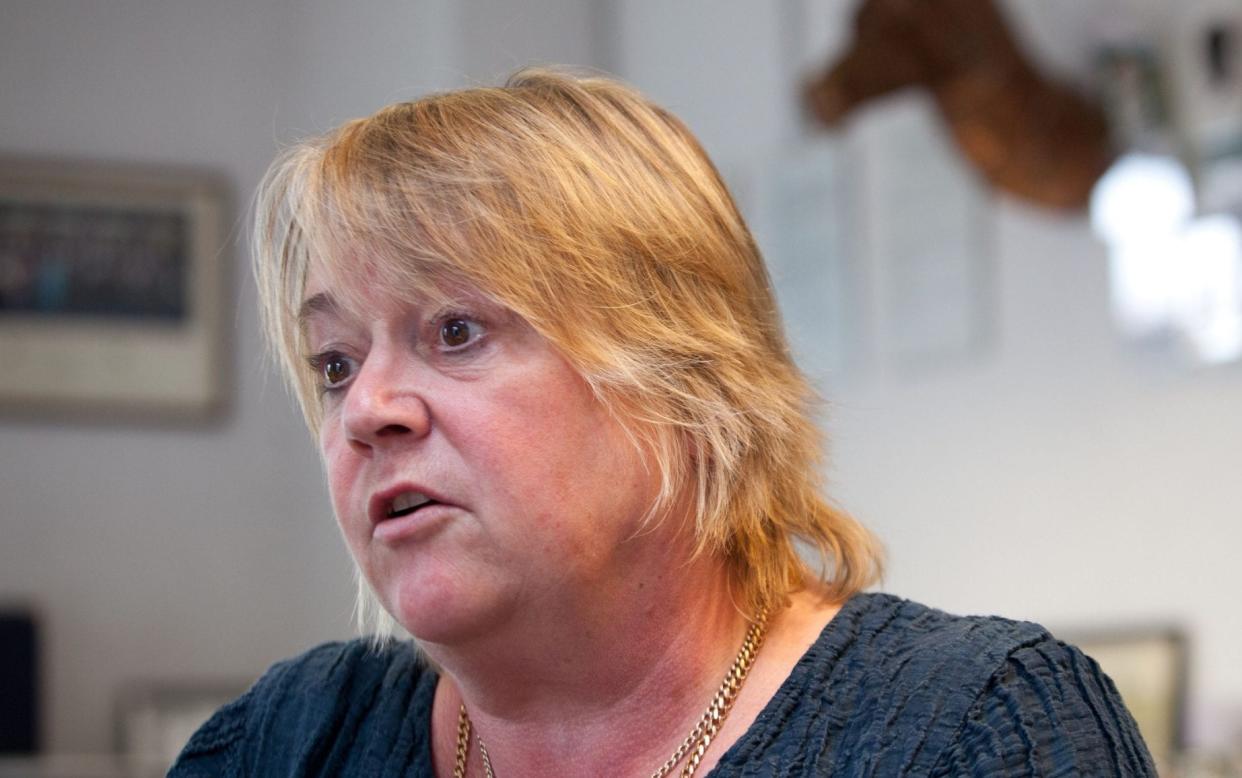Law chief’s wild pond mired freeholder in years of litigation

- Oops!Something went wrong.Please try again later.
As a human rights lawyer and former commissioner for standards at the House of Lords, Lucy Scott-Moncrieff no doubt will have the highest moral integrity.
It was therefore a surprise when some peers recently accused her of using “bullying” letters to persuade them to attend a course designed to combat bullying, discrimination and sexual harassment.
But, The Telegraph can reveal Ms Scott-Moncrieff has herself been locked in a lengthy and bitter legal battle with the freeholder at her Victorian home in northwest London after she built a large wild swimming pond.
Christine Guignabaudet, 68, owns the freehold for one of two adjoining garden flats Ms Scott Moncrieff, 67, bought more than 20 year ago.
She has claimed she felt “bullied” during the protracted dispute played out in the high court and Court of Appeal.
In 1998, Ms Scott-Moncrieff bought the ground floor flat of a semi-detached house. Two years later she purchased the next door flat and converted the two properties with their gardens into a single family home.
“It all started when she removed the boundary fence between the two gardens, meaning I had to give her a retrospective license approving it,” Ms Guignabaudet, a historian, said.
In 2006, Ms Scott-Moncrieff obtained planning permission to build a “natural swimming pool” spanning a large part of both gardens. Ms Guignabaudet obtained an injunction to stop the works while she took the case to the high court believing it contravened the lease, and so consent was needed.
But in 2008, the high court rejected the freeholder’s claim, in part because the judge concluded the pond was not an “alteration in the construction of the demised premises” and so did not breach the lease.
And so, the swimming pond was created. It later featured in a local newspaper where its bulrushes, watercress, mint and marsh marigolds received high praise.
Ms Guignabaudet took the case to the Court of Appeal, where three judges concluded a 27-square-metre “swimming area” that required 34 cubic metres of soil to be removed, much of it from the boundary fence area, did in fact represent a garden “whose arrangements have been altered within the meaning of this covenant [the lease].”
They noted how even Ms Scott-Moncrieff’s barrister admitted “quite a bit of earth” needed shifting, something the judges estimated to be “three or four large lorry loads”.
“It’s been years of hell and I felt bullied,” Ms Guignabaudet said. “It has cost so much money in legal fees. We obviously needed solicitors, an area where Ms Scott-Moncrieff has a professional advantage.”
Ms Scott-Moncrieff said she felt the matter was now in the past.
The one-time president of the Law Society who runs her own law firm said: “The Court of Appeal decision was in 2009, and all matters have been resolved for many years. The pond has been in use since then, with no challenge from the freeholder.”
She added that litigation regarding leases and freehold is “commonplace” and vehemently rejected any suggestion her “actions or inactions” amounted to bullying, adding how in each case “the threat of litigation came from Ms Guignabaudet.”
In 2016, she was appointed the House of Lords Commissioner for Standards.
Lord Heseltine, the former deputy prime minister, recently wrote how he was one of 60 peers who received a letter from Ms Moncrieff-Scott warning he had failed to sign up for Value Everyone training, so was in breach of the House’s code of conduct and could have privileges withdrawn.
He described the letter as “hectoring”, adding: “I was being bullied into taking an anti-bullying course.”

